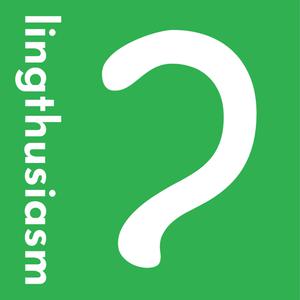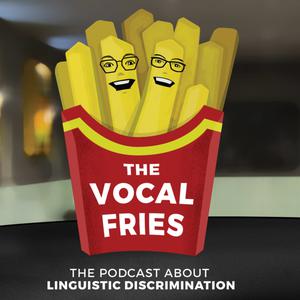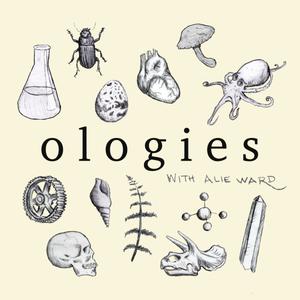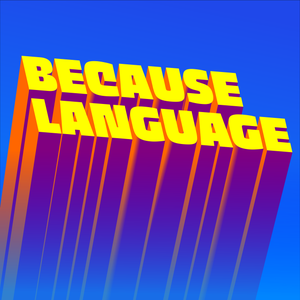
Field Notes
Martha Tsutsui Billins
A podcast about linguistic fieldwork, where seasoned fieldworkers share their stories from the field of language documentation & description.
- 39 minutes 3 secondsEp. 50: Field Notes Finale! Martha Tsutsui Billins & Laura Tsutsui on Amami Sociolinguistic Research
Happy International Mother Language Day! After 5 seasons, this is the final episode of Field Notes! Today's interview is between Laura Tsutsui (Field Notes producer) and Martha Tsutsui Billins (Field Notes host) on Amami sociolinguistic research, plus a look back at the last five years of podcasting. Thanks so much for listening!
Things mentioned in this episode:
- Uchinaa Yamatu-guchi
- Yaeyama language
- Amami languages
- Ryukyuan language family
- Uchinaaguchi (Okinawan) language
- Miyako language
- Dunan (Yonaguni) language
- Pragmatic Consequences of Language Shift: A Contrastive Study of Politeness Marker Loss in Northern Ryukyuan (van der Lubbe, Tsutsui & Heinrich, 2021)
- Lingthusiasm Podcast
- Ep 3: Lyle Campbell on Language Documentation in the Americas
- Ep 6: Madoka Hammine on Insider Research in the Ryukyus
- Ep 21: Community-Based Documentation with Sheena Shah
- Endangered Languages Archive
- Ep. 45: Patrick Heinrich on Ryukyuan Language Documentation and Revitalization
- Ep. 46: Kate Lindsey on Idi and Ende Language Documentation in Papua New Guinea
- JET Programme
- National Science Foundation
- SBE Postdoctoral Research Fellowships (SPRF)
- Grandad: Fresno State's Archaeological Field School
- SOAS, University of London
- International Conference on Language Documentation & Conservation
21 February 2024, 11:35 pm - 28 minutes 15 secondsEp. 49: Alexandra Philbin on Irish and Catalan Language Research & Revitalization
This episode is with Alexandra Philbin. Alexandra is originally from Dublin, Ireland, and now lives in València, Spain. She is carrying out doctoral research in the Department of Sociology and Social Anthropology at the University of València. Her research focuses on the experiences of urban speakers of minoritized languages, particularly Irish speakers in Dublin and Valencian (Catalan) speakers in València. Before moving to València, she completed an undergraduate degree in World Languages at University College Cork, and a master’s degree in Linguistic Anthropology at Maynooth University. She also taught Irish to adult learners and carried out research on Irish-medium education on behalf of the Irish government. As well as completing her PhD research, Alexandra teaches Irish and works as a Language Revitalization Mentor with the Endangered Languages Project, offering free, online support to those working to promote Indigenous and minoritized languages around the world.
Things mentioned in this episode
- Irish language
- Galician language
- Catalan language
- Endangered Languages Project
- Ep. 48: Yulha Lhawa on Khroskyabs Language Documentation & Revitalization
- Endangered Languages Project Mentorship Program
- Ep 24: Pius Akumbu on Insider Research in Babanki
- Pop-Up Gaeltacht
- Celtic languages
- Manx language
- Welsh language
- Breton language
- Cornish language
- Scottish Gaelic language
- Association of Celtic Students
- Alexandra’s email: alexandra AT endangeredlanguages.com
- Alexandra on Twitter: @Alexandra_Phil_
- Alexandra on Instagram: @irlandesaalavalenciana
14 February 2024, 10:50 pm - 53 minutes 36 secondsEp. 48: Yulha Lhawa on Khroskyabs Language Documentation & Revitalization
This month's episode is with Yulha Lhawa from the University of Washington and the Endangered Languages Project.
Yulha Lhawa, originally from Siyuewu Village in Sichuan, China, is a passionate advocate for her community's traditions and language. Growing up as a yak herder, Yulha developed an interest in linguistics during high school. This interest fueled her to create the trilingual book "Warming Your Hands by Moonlight," aimed at preserving local history and folklore. Taking her dedication a step further, Yulha journeyed to the United States from the Himalayas to study linguistics at the University of Oregon. Currently, she's pursuing a Master's in computational linguistics at the University of Washington, hoping to merge her linguistic knowledge with modern technology to contribute to the preservation of her community's cultural heritage.
Things mentioned in this episode
- Khroskyabs language
- Gyalrongic languages
- Tibeto-Burman languages
- Endangered Languages Project
- Endangered Languages Project Mentorship Program
- Khroskyabs on YouTube
- Field Notes Patreon
12 January 2024, 4:31 pm - 45 minutes 52 secondsEp. 47: Karolina Grzech on Evidentiality and Epistemicity in Quechuan Languages
This month's episode is with Dr. Karolina Grzech at the University of Valencia. Karolina is a documentary and descriptive linguist, working mostly on Quechuan languages and natural language use. Her main topics of research are evidentiality (encoding how we know things) and epistemicity (encoding different aspects of knowledge). She is particularly interested in how these categories play out in natural discourse. She also researches pragmatics in general, and, language endangerment and methodology of linguistic fieldwork, with special reference to the indigenous language of South America. Karolina is also interested in the socio-economic issues which affect minority and endangered languages and the communities which use them.
Finally, if you are interested in learning more about Quechuan languages, last season Field Notes aired an interview with Gladys Camacho Ríos on her work with her native language, South Bolivian Quechua (episode linked below in show notes).
Things mentioned in this episode:
- MA in Language Documentation & Description at SOAS, University of London
- Endangered Languages Documentation Programme
- Endangered Languages Archive
- Field Notes Ep. 46: Kate Lindsey on Idi and Ende Language Documentation in Papua New Guinea
- Shuar language
- Kichwa language
- Endangered oral traditions of Kichwa-speaking Ecuador: collaborative documentation of Chibuleo Kichwa / Tradiciones orales amenazadas del Ecuador Kichwa-hablante: documentación colaborativa del Kichwa de Chibuleo(ELAR deposit)
- Upper Napo Kichwa: documentation of language and culture (ELAR deposit)
- Endangered oral traditions of Kichwa-speaking Ecuador: collaborative documentation of Upper Napo Kichwa / Tradiciones orales amenazadas del Ecuador Kichwa-hablante: documentación colaborativa del Kichwa de Alto Napo (ELAR deposit)
- Field Notes Ep. 36: Quechuan Language Documentation & Revitalization with Gladys Camacho Ríos
- Language Landscape
- Karolina on Google Scholar
- Karolina on ResearchGate
- Karolina on Academia
4 December 2023, 4:32 pm - 53 minutes 38 secondsEp. 46: Kate Lindsey on Idi and Ende Language Documentation in Papua New Guinea
This month's episode is with Dr. Kate Lindsey. Kate is a professor of linguistics and co-director of the Structures of Under-Researched Languages lab at Boston University. Her research has both theoretical and documentary applications. Her theoretical work focuses on the analysis of underspecification and variation in phonological systems supported primarily by field data. Her dissertation utilized original data from eleven months of fieldwork with Ende speakers of Limol village, Papua New Guinea to explore the interaction of so-called ghost elements pervasive in Ende phonology. Current research projects include extended fieldwork in the South Fly area of Papua New Guinea to support the first reference grammar of Ende, a typological study of the Pahoturi River language family, and theoretical analyses of vowel harmony and phonological reduplication.
Things mentioned in this episode
31 October 2023, 3:57 pm - 53 minutes 23 secondsEp. 45: Patrick Heinrich on Ryukyuan Language Documentation and Revitalization
Field Notes is back for its fifth and final season! Season five's inagural episode is with Patrick Heinrich from the Ca' Foscari University of Venice. Patrick received his Masters degree in Linguistics and Japanese Studies in 1998 from Heinrich-Heine University Düsseldorf. He completed his PhD in Japanese Studies in 2002 at Duisburg University. He is a sociolinguist who has worked extensively in the Ryukyuan archipelago, and has written many publications on language ideology, language shift, language reclamation, language planning and policy, and language and well-being. Along with Shinsho Miyara and Michinori Shimoji, he is the co-editor of the Handbook of the Ryukyuan Languages (2015). He is also co-editor of Language Crisis in the Ryukyus (2014), along with Mark Anderson.
Things mentioned in this episode:
- Ryukyuan language family
- Uchinaaguchi (Okinawan) language
- Miyako language
- Dunan (Yonaguni) language
- Yaeyama language
- Amami languages
- Educated Not to Speak Our Language: Language Attitudes and Newspeakerness in the Yaeyaman Language(Hammine, 2020)
- Language Shift in the Ryukyu Islands (Anderson, 2019)
- Byron Fija on Ryukyuan Languages in Uchinaaguchi
- Ladino language
- Yonaguni film
- Yonaguni Fotografia Europea photo project (Anush Hamzehian and Vittorio Mortarotti- more info found here and catalogue found here)
- Rice Island, Satellite Island, Border Island: Yonaguni Across Time (Heinrich, 2021)
- Patrick on ResearchGate
- Madoka Hammine on ResearchGate
If you are interested in Ryukyuan linguistics, check out previous Field Notes episodes with Prof. Michinori Shimoji and Madoka Hammine:
29 September 2023, 1:51 am - 36 minutes 55 secondsEp. 44: Myfany Turpin on Australian Aboriginal Song-poetry and Documentation
This month's very special episode is with Myfany Turpin, an Associate Professor at the University of Sydney. Myfany has been working on Australian Aboriginal songs and languages since 1996. Her research interests include the relationship between language and music, especially of lesser-known cultures; and identifying ways to support the continuation of endangered languages and performance arts. Her work examines Aboriginal song-poetry and its relationship to spoken languages and the documentation of the Kaytetye language and encyclopaedic knowledge, an Arandic language of Central Australia.
Things mentioned in this episode:
- ABC Radio National episodes
- Project page
- Pantjiti McKenzie-lu Inma Kulkalanyatjara Wangkanyi Pantjiti McKenzie talks about the ceremony ‘Kulkalanya’
- Inma Kulkalanya Wangkanyi. Talking about the ceremony ‘Kulkalanya’. Iluwanti Mervyn, Tinpulya Ken, Josephine Mick and Renee Kulitja
- Buried in the Sand: Digging deep into Gudjal language and culture (Toksave: Culture Talks)
- Kaytetye recordings (Hale)
- Thangkerne birds
- indigemoji
- Myfany on Google Scholar
- Myfany on ResearchGate
From June 2023, Field Notes will be taking a summer break, so look for new regular episodes coming September 2023. Bonus mini episode content (on Patreon) will continue as usual (throughout the summer) for patrons pledging $5/month and above. If you would like to support Field Notes on Patreon, you can do so here.
31 May 2023, 1:26 pm - 34 minutes 54 secondsEp. 43: Language Documentation & Revitalization in Canada with Nicholas Welch
This month's episode is with Nicholas Welch from Memorial University of Newfoundland. Nicholas is the Canada Research Chair in Change, Adaptation and Revitalization of Aboriginal Languages and Assistant Professor at Memorial University of Newfoundland. He received his B.A. and M.A. in Linguistics from the University of Victoria. His Ph.D. is from the University of Calgary and his dissertation was entitled: "The bearable lightness of being: The encoding of coincidence in two- copula languages". He has done extensive research on Dene and Algonquian morphosyntax, and has also done language revitalization work with languages of Labrador. In addition to teaching and research, Nicholas also runs the YouTube channel, Labrador Languages Preservation Laboratory (LLPL).
Things mentioned in this episode:
19 April 2023, 7:57 am - 49 minutes 3 secondsEp. 42: Michelle Kamigaki-Baron on Pidgin & Secwepemctsín Language Research
This month's very special episode is with Michelle Kamigaki-Baron. Michelle is a PhD student in the department of Linguistics at the University of British Columbia. She was born and raised in Hawai’i into a family of coffee plantation laborers from Honaunau, Hawai’i. Her research primarily involves speech production and perception, how these processes are changed in the context of bilingualism or bidialectalism of languages that exist in diglossia, and the continuous nature of language. She works primarily with the Secwepemc community in BC with speakers of the Secwepemctsín language and also with her own community in Hawai’i with speakers of Pidgin and ‘Ōlelo Hawai’i. In her free time Michelle enjoys swimming in the ocean, spending time with friends and family, eating out, thrifting, and trying to kidnap her dog frens.
Things mentioned in this episode:
31 January 2023, 9:13 am - 25 minutes 26 secondsEp. 41: Ambrocio Gutiérrez Lorenzo on Zapotec Language Documentation & Revitalization
This month’s episode is with Ambrocio Gutiérrez Lorenzo from the University of Colorado Boulder. Ambrocio earned his PhD at the University of Texas at Austin in 2021. He earned his MA in 2014 at the Centro de Investigaciones y Estudios Superiores en Antropología Social (CIESAS), Mexico. He is a documentary and descriptive linguist whose research focuses on the syntax and semantics of the Zapotec (Otomanguean) languages of southern Mexico. He has also worked on adjacent areas of phonology and morphology and has broad interests across all the linguistic subfields, including especially discourse analysis and historical linguistics.
He promotes work on indigenous languages by native speakers and members of heritage communities. He himself is a native speaker of Teotitlán del Valle Zapotec and he has collaborated with other Zapotec and non-Zapotec colleagues to develop academic and revitalization materials.
Things mentioned in this episode:
30 December 2022, 8:32 am - 34 minutes 19 secondsEp. 40: Jessica Coon on Mayan Language Documentation & Consulting on Arrival
Today's episode is with Jessica Coon, an Associate Professor in the Department of Linguistics at McGill University and Canada Research Chair in Syntax and Indigenous Languages.
Much of Jessica’s work has focused on Mayan languages, in particular Ch’ol (a language of southern Mexico) and Chuj (a language of Guatemala). She has also researched Mi’gmaq, an Algonquian language of eastern Canada. In addition to theoretical work on these languages, She has worked to build collaborations with the communities of speakers who are working to document, promote, and revitalize these languages. At McGill, Jessica co-leads the Montreal Under-documented Languages and Linguistics Lab. She is also the current director of the Indigenous Studies and Community Engagement Initiative (ISCEI).
Jessica was also a consultant on the film Arrival, which features a field linguist as the main protagonist, played by Amy Adams.
Things mentioned in this episode:
25 November 2022, 8:00 am - More Episodes? Get the App
Your feedback is valuable to us. Should you encounter any bugs, glitches, lack of functionality or other problems, please email us on [email protected] or join Moon.FM Telegram Group where you can talk directly to the dev team who are happy to answer any queries.
 Lingthusiasm - A podcast that's enthusiastic about linguistics
Lingthusiasm - A podcast that's enthusiastic about linguistics
 The Vocal Fries
The Vocal Fries
 Ologies with Alie Ward
Ologies with Alie Ward
 Because Language - a podcast about linguistics, the science of language.
Because Language - a podcast about linguistics, the science of language.
 Slate Debates
Slate Debates